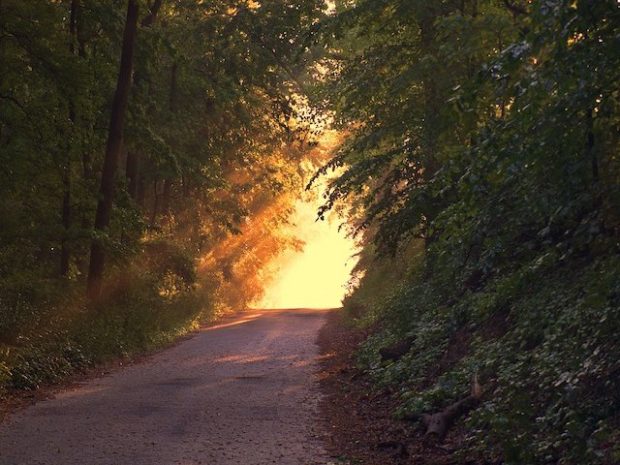You have no items in your cart. Want to get some nice things?
Go shopping
This could be, if Bognor had a cathedral, a tale of two cities, twin poles in the life of Wilson Thomas.
*
—I’m going as far as Guildford. Any good to you?
*
The shortest distance between two points, there being no motorway, is a meander, in this case the A285, A283 and A3100. It is on these procrastinating curves that Wilson Thomas has come to rely for his mental health, his life.
*
—You can put that nightie on the back seat.
*
There is another, identical, locked in the boot.
*
—Little gift for my wife. Well, I say my wife. Always take them something when I go home. Was it a holiday in Bognor, or business? Personally I live there. Not easy to own up to. I mean, what does anyone know about Bognor except George the whatsit’s dying words? Bugger Bognor. (Map of Britain. Bognor marked in red. Caption: Welcome to Bognor, Backdoor of Britain.) Its only claim to fame. Almost Joycean. Irishman goes for a job on a building site. Foreman asks him, sort of proficiency test, “What’s the difference between a joist and a girder?” Quick as a flash on a frosty night he comes back, “One wrote Ulysses, the other wrote Faust.”
Not a literary man, then?
Visit the pier? (Two explorers silhouetted in a tent. Night time. Caption: Where’s my pith helmet?)
Met my wife on the pier. Donald McGill exhibition. Working visit for me. Professional card-man. I like to say that. Shades of green shades, sleazy glamour. Actually more prosaic. Belle Vue Cards. I rep for them. Plus a little creative work. My wife helps me with that. Amateur cartoonist.
*
It was love at first sight. They were both peering at the same framed card. He noticed the dimple in her cheek matching the one between her shoulders. She looked up. Eyes of postcard-sky blue. He raised his cap. Her dimples deepened. The sea glittered, like the glass beads on his mother’s throat, his earliest recollection, tickling his eyes.
“I’ve an original McGill of my own if you’d care to see it?”
He drove her to his digs.
“Not many on the market these days. Difficult to come by unless you have contacts. Gives you a little frisson knowing it’s the actual paper he worked on. Speaking of frissons, I’ve another McGill in here.” He dropped his trousers. Embroidered mothers-in-law all over his shorts.
He had the McGill framed and gave it to her. The un-nuanced figures of Curate and Vamp, secure in their ink outline against the washes of colour, brought afresh the first rapture of childhood as they opened it together.
Her first present to him was a pair of musical shorts. They played “I Do Like to Be beside the Seaside”, at the touch of a microchip. He put them on to propose. “I don’t know your name yet.” “Er, Thomas, Wilson.” “Yes, Thomas Wilson, I will.”
*
—She did a little sketch of me. Caricature. At least, I hope it’s a caricature. I had it copied, printed up. Send them to her on my longer tours of duty, captioned “Greetings from the Fat Man in Postcards”.
Funny, women go for the fuller figure. Thin men don’t realize. Look at H.G. Wells. Never short of female admirers. Used to call him Treacle Wells. One of his women was asked why she found him so attractive. Said, because his skin smelt of honey. Extraordinary. “Stands the Clock at Ten to Three?”
I told my wife about that once. She said, Sounds fun, let’s try. Anointed me with a pot of Gales.
Every so often, one of us will say, Let’s have an H.G. Wells night. Only we moved on to Lemon Curd.
Did a Midlands tour a few months ago, sent her a jar, with a boxed chipolata and a note, “The shape of things to come.”
Duncton. Making good time. Another trip, I phoned her anonymously, did the old heavy breathing. She just said, cool as you like, “If you want the asthma clinic you’ve got the wrong number” and hung up.
You’d like my wife.
Ever been to America?
*
This will peter out beyond Petworth.
*
—Petworth Park. Sounds like a municipal tryst for lovers. As I was saying, we do alright, we larger men. Takes women unawares. I grant you a novel called The Fat Man wouldn’t have the same ring, but that’s only prejudice.
I usually stop about here, have a breather, stretch my legs.
*
At exactly here. Midpoint of his journey, zenith of his weekly trajectory. Marked on the Ordnance Survey as Ball’s Cross. Here he is poised between two worlds. He will drive into a lane, walk up and down, lean on a gate. His tongue searches his teeth, seeks out the small molar cavity. Into its rough protective burr his soul nestles. He will be here for several minutes while the magnetic field reverses.
He will drive up the narrow road, turn left, then on to join the A283.
*
—The quilted fields of England. I love this countryside. Even the names resonate. Chiddingfold. Could be Old English for “cemetery”, conjures up the cosiness of village graveyards. All safely gathered in. Hambledon, Bramley. English as autumn mists.
Pictures of this sort of landscape – maybe a shire horse in the middle distance, church spire far distance – still work their magic, guarantee the sales. Anythin’ rural or ecclesiastical or both. Even quite modern buildings can do it. Know Guildford Cathedral? Only finished in l961. Still a popular card. That’s how I met my wife. She was sketching it. Naturally I took a professional interest. Suggested she did a watercolour, maybe soften the cathedral, age it a little, submit it to my art director for a greetings card. She did, he went for the idea, I went for her.
*
It was love at first sight. He had leaned over her shoulder, watched the pastel smudge the deep-grained paper. Her long hair matched the quaking-grass, ruffled by the same breeze. Her chin set in concentration, a soft furrow echoing a distant field. He retreated until she was packing up, handed her his card.
They drove into town, had coffee and scones with a view of the Guildhall, then drove through darkening Surrey lanes.
This was the pattern of their Sundays for a month.
On the Sunday of Michaelmas, after their coffee, he parked in sight of the cathedral, wound down the window. “You’d make a perfect Mrs Wilson Thomas. You might even enjoy it.” “Will I, Wilson Thomas? Yes.”
*
—She became very interested in colour-washed pen and ink. We both love the work of Thomas Rowlandson, his chromatic delicacy against the robust penwork, the feathery foliage. I got her to do a series of views in that style, tried to get the firm to accept them as a set of upmarket postcards. Came to nothing. I had a few printed up, send them to her when I’m on the road, with a little poem on the back, something out of Clare or Herrick or William Blake. Blake is her idol. The watercolours, the woodcuts – she loves them. Did you know he lived near Bognor? Felpham, few miles along the coast. She wanted to visit it, soak up the atmosphere. Tricky. Had to head her off on that. Suggested a little project of my own – trace the locales of Wilson Steer’s works. Personal interest – he was a distant relative on my grandmother’s side. I’m named after him, in fact.
So whenever I have a few days leave, we’ve been trundling round the country, Suffolk, Yorkshire, Stroud Valley, tracking down the footprints of his easel, so to speak. She copies the paintings, I photograph the scene. “Then and now” sort of thing. Surprising how much of the country is still unspoiled. Turn down a lane, find a stile, follow a path between furrowed fields. Smell of wet earth. Leaf mould in the hedgerows. Like generations of wisdom, sifting into the soil. She’ll put her arm through mine, say, Breathe it in. I know just what she means.
You’d like my wife.
See that programme on cancer on the box?
*
Wilson is much possessed by death, and sees the skull beneath the skin. For if one of them should die? Or leave? Easier to face the knock upon the door.
Wilson is not, has never been, a political man, but he has watched, appalled, the bi-polarity of the world crumble. He is unnerved. The world now reminds him of a pre-Columbus globe in reverse. He sometimes feels the axis tilt, feels the slide and scramble. Each stop at Ball’s Cross becomes a little longer.
Wilson has read somewhere of a scientist who requested his ashes be made into a firework, who ended his earthly intactness in the starshower of a score of rockets.
He thinks of him now, thinks of himself, sees his wives and assembled guests, with their sausages on sticks, gazing at the flare and burst; of his soul ricocheting off the stars.

About David Rose
David Rose was born in 1949. After attending a local Grammar, he spent his working life in the Post Office. His debut story was published in the Literary Review in 1989, since when he has appeared in a wide variety of magazines and anthologies, including Best British Short Stories (Salt). He was for some years co-owner and Fiction Editor of Main Street Journal. His first novel, Vault, was published in 2011, followed by a story collection, Posthumous Stories, in 2013 (both Salt). His second novel, Meridian, appeared in 2015 from Unthank Books. In 2018, a story from Posthumous Stories - "A Nice Bucket" - was selected for The Penguin Book of the Contemporary British Short Story (ed. Hensher). In November 2022, a collection of eight stories - with photographic artwork by Leah Leaf - Interpolated Stories - appeared from Confingo Publishing. He lives just outside West London, between Richmond and Windsor.




